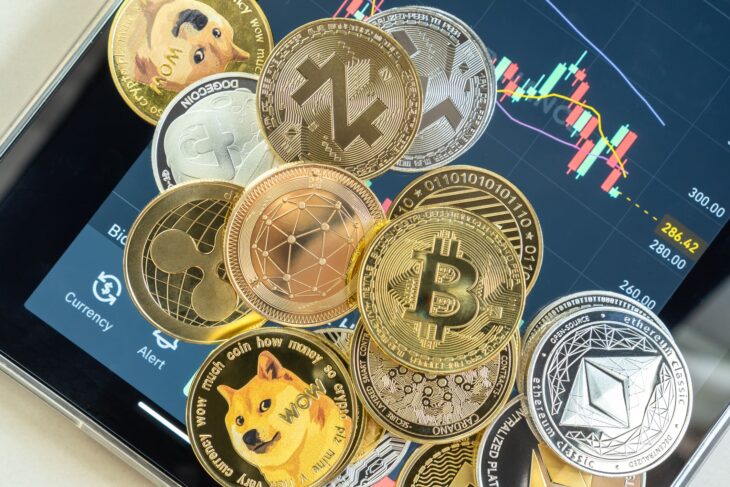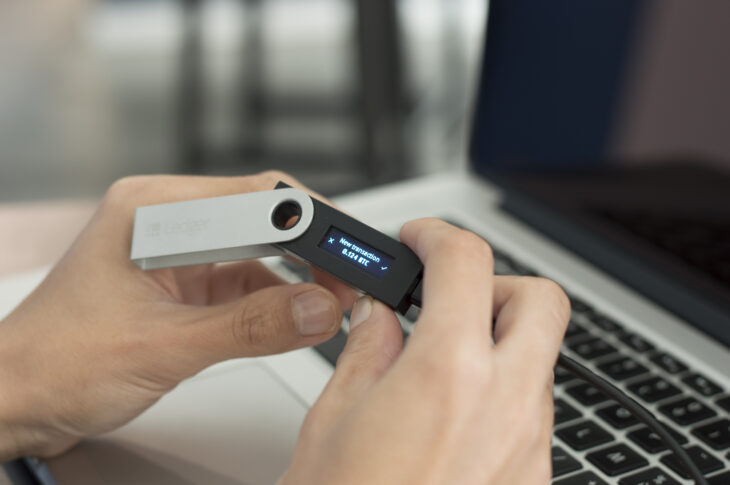Crypto is a pretty big part of our lives now. We know that in the beginning not many of you were found to this type of currency but as time goes by and like Bitcoin, Ethereum and other cryptos progress our opinions change, and they change a lot.
Since we have set our mind that we will have some crypto as a backup or since we decided we want to use it, trade it, or even make a profit with it or of it, we need to keep it somewhere right?! Now, we all know that there are wallets that are designed to hold cryptocurrency and we know that we use exchanges for purchase, sale, and exchange of the crypto to any other FIAT currency. But what if we told you that you can also hold your crypto in exchanges instead of on your wallets?!
Is that a smart thing to do, is it profitable, practical, or what? Great questions altogether, and with this article today we will try to give you educated answers. We will tackle the question of exchange vs. wallet, pros and cons of this and we will allow you to make an educated decision after you read this through. For more info on crypto and general information like this, you can try EuropeanBusinessReview and see what you can learn there.

Source: cnbc.com
Let’s start with exchanges. There are several of them that are reputable, and we will not name them, you probably know about one or two of them by now. We will try to keep it simple and explanatory because all of them, more or less, operate on the same principle. Let’s say you open an account on exchange A and you buy some crypto. What happens is that they open your account transfer that crypto to your wallet which is created as soon as you purchase crypto, but they keep them private and secret keys and keep your crypto in what is called cold storage. This means that you have bought crypto that is currently offline and that it cannot be attacked. You also have to be aware that every exchange will have some assurances in place just to help you and them be safer from hacker attacks. They will ensure your crypto if that exchange suffers a hack attack, but they will not do so if your specific wallet is hacked and your crypto gets transferred elsewhere.
This is OK protection, sort of, because exchanges are meant for purchase, exchange, and possible trade of the currencies after which you will transfer your money safely into your wallet. The means to be more protected o exchanges can be upped by having a separate app that will be tied to this and work as a two-step authenticator that will randomly generate numbers every so often and that will stop anyone from transferring any amount of crypto from your account if it doesn’t have your device with that authenticator and with the correct random numbers generated at that specific moment. Exchanges can be viewed almost like a bank or a brokerage service. If that doesn’t bother you and if you are planning on selling, buying more, trading in general then you can have your crypto stored at the exchange of your preference for easier access, but don’t think of it as a long-term solution.

Source: coinbase.com
Wallets are a different thing and there are two types of these. Today we will explain the operation behind hard or hardware wallets that are supposed to be the top tier protection, especially for those of you that have substantial amounts of crypto to store. A hardware wallet will allow you to not rely on an exchange to hold your crypto, you are not going to rely on seed words and phrases generated online that can be intercepted by someone who knows what exactly to look for. With hard or hardware wallets you are moving into the most secure one of crypto, just like it was intended to be. As you know there are also several types of these hardware wallets, and they are all good at their job. We will not advertise any of them, because if you want to get them for yourself you can google them, check the reviews and decide for yourself. After all, we don’t want to be held reliable for anything. We hope you understand. There are several top tier brands and you can find them easily as well.
To continue, all we are going to tell you is to try and find one of those hardware wallets that offer other things that can make your life easier. Look for those that have easy to use interface, look for connectivity options that can allow you to easily switch between your phone, PC or whatever else’s you use. Those things are just some little ones but they will make your life and usage of this device a whole lot easier. Another thing to consider is the fact that you need to find the one wallet that will allow for multiple cryptos. Some wallets only support several bigger cryptocurrencies, while others have upwards of 1000+ cryptocurrencies, where you will be guaranteed get to see all of the main cryptos but also altcoins that you may be holding or planning to get in the future. Another neat feature of these types of wallets is that you are allowed to send your crypto wherever needed faster and with lower fees. Now again, for full disclosure, depending on which wallet you choose those speeds and fees may vary so keep that in mind as well.

Source: coinbase.com
Another thing to understand is that everything you see in the wallet app is constantly sitting cold somewhere because it is not always connected to your hard wallet. This is important to know and this is what ups the ante on the security of your crypto. That cash is out cold and legitimately un-hackable because it is not connected to your hard wallet all the time.
In a conclusion, these are two different scenarios for two different use cases. As we told you in the beginning you will be able to make an educated decision on how it is best to keep your crypto. We believe that you already have the answer and that you know what to do. To confirm it we will sum everything up. If you are a trader, if you constantly buy, sell and trade then it is probably OK to use the exchange wallets that they generate after you purchase crypto there. If you are going to buy and keep that crypto for longer without any movements then exchanges are not for you and you are better off with a hard wallet.
